
The Western Balkans remains the most dangerous geopolitical crossroads, as the countries have major differences of opinion regarding their strategic orientation. A survey commissioned by the American Republican Institute (IRI) and conducted between February and March of this year shows differences in perceptions of the global East and West, or even how they are viewed as neighboring countries. While for Kosovo and Albania proximity to the West is the most important thing, for Serbia Russia seems to be the most important priority.
Although all six countries of the Western Balkans are in the process of joining the European Union (EU), a union of the global West, research shows that Russia continues to be viewed with admiration by a significant proportion of the region’s inhabitants.
Serbia with Russia – a threat to the region
When asked about the future course of foreign policy, ethnic Albanians in the region are more pro-Western. In first place is Kosovo, where 87% of citizens believe that the country should pursue an exclusively EU-friendly and Western foreign policy. The second country is Albania, where 87% of respondents supported the pro-Western policy.
In other countries of the Western Balkans, support for a pro-Western policy is below 50%. In Bosnia and Herzegovina, for example, 39% of respondents believe that the country should only pursue a pro-EU and pro-West policy, 44% believe that the same relations should be maintained, while 8% expressed their opinion solely on relations with Russia. In Montenegro, 36% expressed a desire for good relations with the EU and the West only, while 3% wanted an exclusively pro-Russian foreign policy.
Serbia appears to be the only country where more citizens want a foreign policy that is exclusively in favor of Russia (12%) than a policy that is exclusively pro-EU and pro-Western (10%). While the majority, namely 31% of respondents, are in favor of a balanced foreign policy between the West and Russia, 27% are in favor of a pro-Russian policy maintaining relations with the West as well.
North Macedonia (RNM) has seen a decline in support for EU integration policies and support for the West in general, especially after three consecutive vetoes imposed by its neighbors on the road to Euro-Atlantic structures. In 2008, Greece vetoed the country’s NATO membership, which was voted after a decade with the approval of the Prespa agreement, leading to the country’s name change. In 2019, France did not allow negotiations to begin due to the demand for a new methodology in the EU accession process, which was approved by Brussels a year later. Meanwhile, Bulgaria’s veto dates back to 2020 and requires the start of negotiations on constitutional amendments to include ethnic Bulgarians in the preamble, in line with the French proposal adopted by the parliaments of both countries in 2022. As a result, the IRI poll shows that only 31% of RNM citizens think that the country’s foreign policy should be exclusively pro-EU and pro-Western, 23% think it should be balanced with Russia, 12% think it should be pro-Western but 11% think it should maintain relations with Russia but maintain relations with the West, and 5% want an exclusively pro-Russian foreign policy.

Albania and Kosovo are also in the top two places when it comes to relations with NATO. In Kosovo, 88% of respondents believe that membership of NATO is the best relationship with this organization. This figure is higher than in 2022, when 75% of respondents were in favor of membership. In Albania, this figure is 85%.
In North Macedonia, 52% are in favor of NATO membership, which is an increase compared to 2022, while in Bosnia and Herzegovina it is 50%, which is a slight decrease compared to two years ago. In Montenegro, support for Alliance membership stands at 39%, a decrease of 2% compared to 2022, while in Serbia only 3% want membership.

Apart from the perception of the West and Russia, there are also major differences in the identification of the friendly states of the six Western Balkan countries. For Kosovo and Albania, for example, the USA is their greatest friend, whereas for Serbia it is Russia. Montenegro and North Macedonia see Serbia as their greatest friend, while Bosnia and Herzegovina sees Turkey.

There are many answers to the biggest threats to these countries. Albania, Kosovo and Bosnia and Herzegovina see Serbia, while North Macedonia sees Bulgaria as the greatest threat. Serbia and Montenegro, on the other hand, see the USA as a greater threat.

When it comes to Russia, 32% of respondents in Albania, 17% in Montenegro, 15% in Bosnia and Herzegovina, 12% in North Macedonia and 8% in Kosovo see Russia as a threat. It is interesting to note that when asked to what extent Russia’s aggression in Ukraine was justified, a significant proportion of respondents in Serbia (37%) answered that it was completely or partially unjustified. In North Macedonia, 53% of respondents share this opinion against Russia, in Montenegro 61%, in Kosovo 72% and in Albania 82%.
Perception, presence and influence
The results of this research confirm the link between the perception of Russia and its presence and influence in certain countries in the region. Despite not even being among the top 10 foreign investors or major trading partners in many of them, Russia continues to exert great influence at low cost. They achieve this through strong propaganda and the spread of fake news, especially through new media, always using themes that touch on the ethno-nationalist and religious sentiments of the region’s citizens. By stoking fear and hatred of the “other” in a region with ethnic and religious diversity, Russia tends to keep tensions high, which not only hinders the path to Europe, but also makes the Balkans a potential center of conflict that would help Moscow shift the focus away from Ukraine.
Writes: Xhelal Neziri, editor and associate of The Geopost from North Macedonia

 Serbian government allocates 300 thousand dinars for those arrested for war crimes in Kosovo
Serbian government allocates 300 thousand dinars for those arrested for war crimes in Kosovo 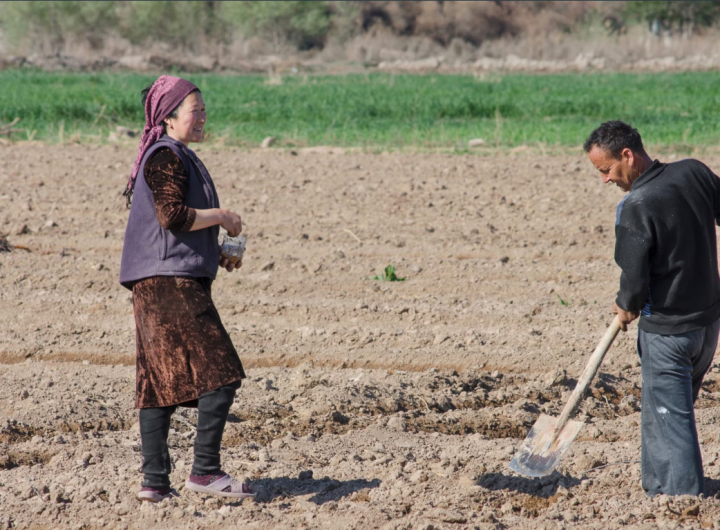 Uzbek Farmers Say They’re Being Forced To Surrender Land To Chinese Firms
Uzbek Farmers Say They’re Being Forced To Surrender Land To Chinese Firms 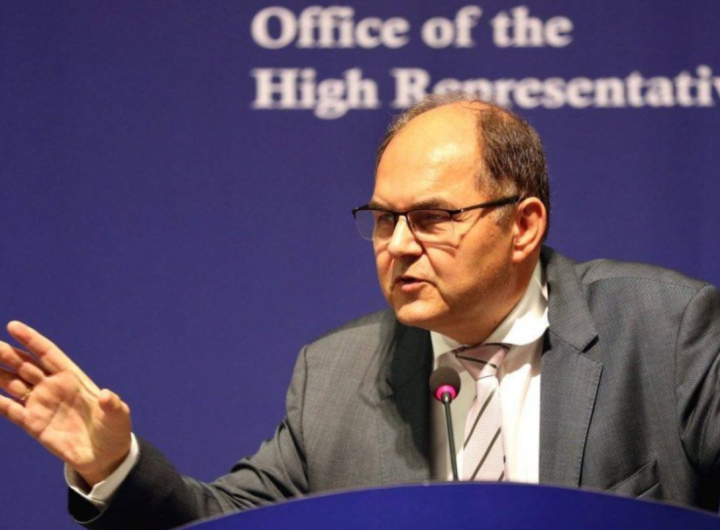 Schmidt’s decision enters into force: Sanctions announced for banks that fail to implement the suspension of SNSD and United Srpska funding
Schmidt’s decision enters into force: Sanctions announced for banks that fail to implement the suspension of SNSD and United Srpska funding 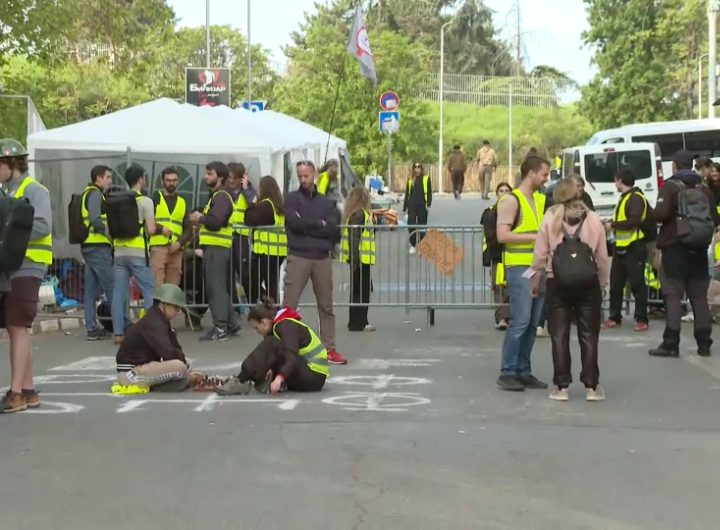 Students call for help early on 10th day of blockade
Students call for help early on 10th day of blockade 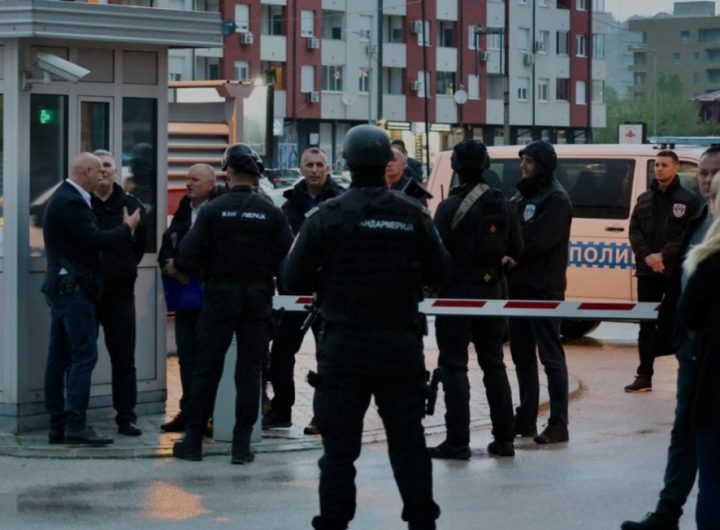 SIPA tried to detain Dodik in East Sarajevo, RS Ministry of Interior objected
SIPA tried to detain Dodik in East Sarajevo, RS Ministry of Interior objected 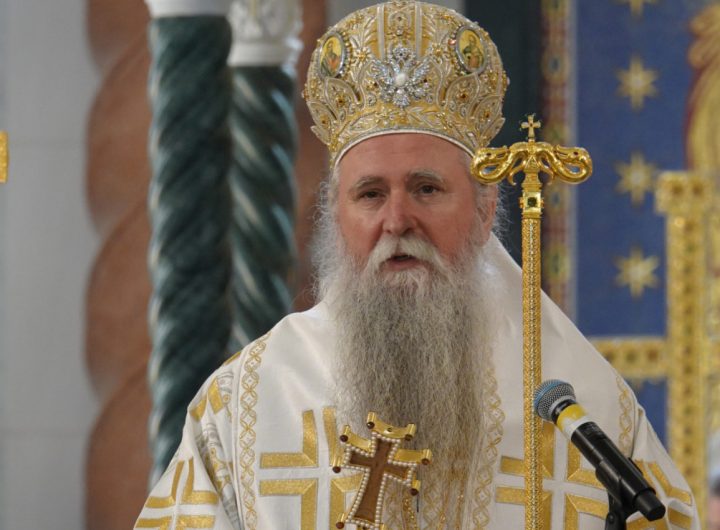 Metropolitan Joanikije misuses the historical tragedy of Jasenovac for political propaganda against Kosovo
Metropolitan Joanikije misuses the historical tragedy of Jasenovac for political propaganda against Kosovo